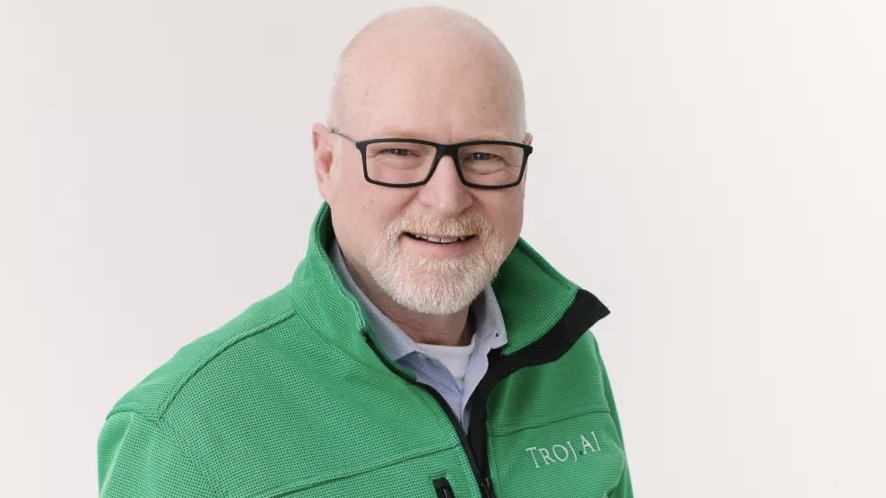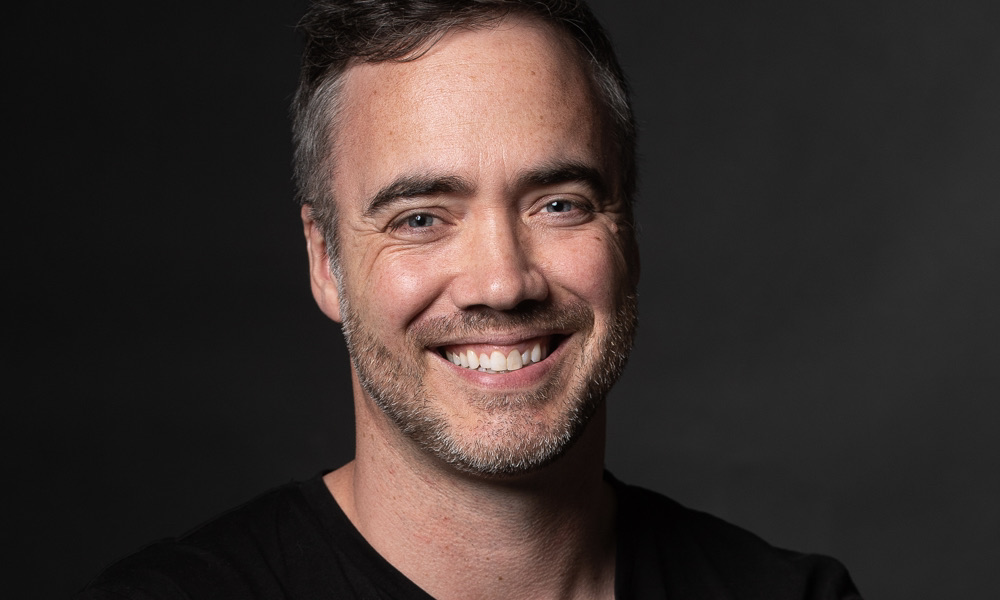A surge of new, headline-making artificial intelligence products from global leaders like OpenAI and Google have thrust the field into the public consciousness like never before. End users can now command AI systems vastly more versatile and sophisticated than previous generations of the tech, generating nearly photo-realistic images and lucid, coherent prose.
But Atlantic Canadian innovators have shown prescience by paying attention to AI before it was in vogue.
Some of the most valuable technology companies in the region’s history have been underpinned by artificial intelligence. One example is St. John’s-based Verafin, which has developed an anti-financial crime AI system and was bought by Nasdaq for US$2.75 billion in 2020. Another is Dartmouth advanced materials startup Meta Materials, which uses AI systems to develop new synthetic materials and two years ago netted Nova Scotia venture capital crown corporation Innovacorp its largest-ever exit, in which the government agency made a profit of $101 million.
More recently, universities in the Atlantic provinces have also invested heavily in AI. Dalhousie’s DeepSense connects private sector oceantech companies with students at a range of Atlantic Canadian institutions for research and development work. Memorial University is launching the Centre for Artificial Intelligence, a research institute that will collaborate with the private sector and train graduate-level students. And property developer Dick Carpenter recently donated $2.5 million to the University of New Brunswick's McKenna Institute to fund AI and data science work.
So as artificial intelligence research and development gathers momentum, here are four home-grown AI startups we’re watching at Entrevestor:
Rally, based in St. John’s, sells software to help lawyers share documents among themselves and their clients, as well as communicate with clients about their cases. The company launched a test version of Spellbook, an AI contract-drafting tool initially underpinned by Silicon Valley giant OpenAI’s GPT-3 large language model and now by its successor, GPT-4.
Spellbook can auto-generate contract clauses using the countless examples of contracts accessible online, along with law firms’ own archives, as training data to generate legal writing in response to user-inputted topic prompts.
“We're slowly opening up the gates, now, as we gain confidence and tune the technology, and also work with OpenAI on all the checks and balances we have in place to make sure that the technology is used properly,” said Stevenson in September.
Also bolstering Spellbook’s appeal to law firms is its ability to quickly extract key data, such as renewal dates and data privacy requirements, from existing contracts for easy reference. And for good measure, the system is compatible with widely used office software, including Microsoft Word.
Newfoundland and Labrador's SiftMed sells an AI system that automatically organizes medical records into a clearly labelled, searchable database for use by insurance companies and law office employees as they assess some types of claims, such as accident-related injuries.
Chief Executive Holly Hill and Co-Founder Dr. Jeremie Larouche, an orthopaedic surgeon, originally conceived of SiftMed as a way to streamline Larouche’s own medical consulting business.
Their technology uses natural language processing to automatically organize and categorize files, optical character recognition to make scanned documents searchable, and other types of artificial intelligence to extract key medical data from files.
The startup’s beachhead market was insurance companies, with personal injury law firms now also firmly in Hill’s sights.

SiftMed CEO Holly Hill
“Let's say that you have a claim come in that you just opened on a car accident, and you are trying to determine the complexity of that claim,” said Hill in February. “If you could have key insights identified to you when you open it right away, it's going to help reduce the time it takes to close that claim.
"We can start to identify the complexity of a claim. So whether or not a claim is a simple claim. Or maybe it's a multimillion dollar claim … and they want to put a senior adjuster on it, for example.”
Earlier this year, SiftMed closed a $2.7 million seed round led by the Atlantic Canadian female-focused VC fund Sandpiper Ventures.
Saint John, N.B.-headquartered TrojAI makes cybersecurity software to protect artificial intelligence systems from sophisticated malware hidden in training data.
AI systems learn by being fed reams of information, such as photos, and searching for patterns, but sophisticated hackers can conceal malware in the same data. The company’s technology is meant to prevent both deliberate attacks and accidental damage caused by unforeseen incidents -- a service intended primarily for large corporations already using AI for real-world business applications.
Founded by University of New Brunswick-trained computer science PhD James Stewart and entrepreneur Stephen Goddard, TrojAI in February became the only Atlantic Canadian company to be accepted into this year’s Canadian iteration of Google for Startups, the tech giant’s accelerator.

TrojAI COO Stephen Goddard
“It's very large enterprises that are at the most advanced in their deployment of using artificial intelligence, both computer vision and natural language processing -- the two areas that we're currently focused on,” Goddard said previously.
The company’s last capital raise, a $3 million seed round that it closed last year was led by Halifax’s Build Ventures and Seattle’s Flying Fish Ventures — a fund co-founded by former Microsoft, Amazon and Getty Images execs
Co-founded by technology sector veteran Mike Winter and former professional race car driver Scott Mansell, Newfoundland’s trophi.ai sells software that offers players of popular racing simulator iRacing AI-generated feedback about how to improve their performance.
Earlier this month, the company raised a $3.3 million seed round led by Build Ventures and plans to use the money to hire 10 to 15 people, with a test version of its product boasting a 10,000-person waitlist.

trophi.ai CEO Mike Winter
Winter said in an interview at the time that trophi.ai has enjoyed strong growth since it last raised capital in 2021. The new seed round, he added, was made easier by a growing interest in artificial intelligence both in the general public and among investors.
With a goal of reaching 100,000 users by the end of next year, Winter said trophi.ai’s next move will be to expand its software compatibility to include other driving simulators, including Assetto Corsa Competizione, and eventually other types of video games altogether, including zany vehicular soccer game Rocket League and, eventually. first-person shooter game Counter-Strike: Global Offensive.
And eventually, further in the company’s future, he hopes to apply similar AI technology to real-world sports, such as hockey.
“Investors love what they’re seeing, and it didn’t hurt that ChatGPT came out in December and made a lot of people realize the potential of AI,” said Winter. “It’s a hot market for AI — I think for good reason.”










